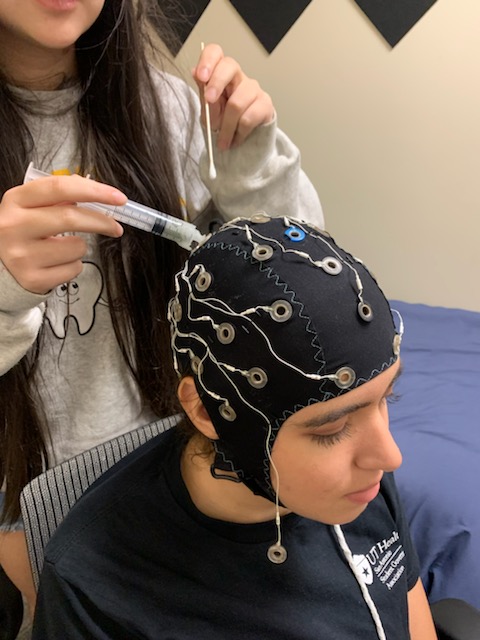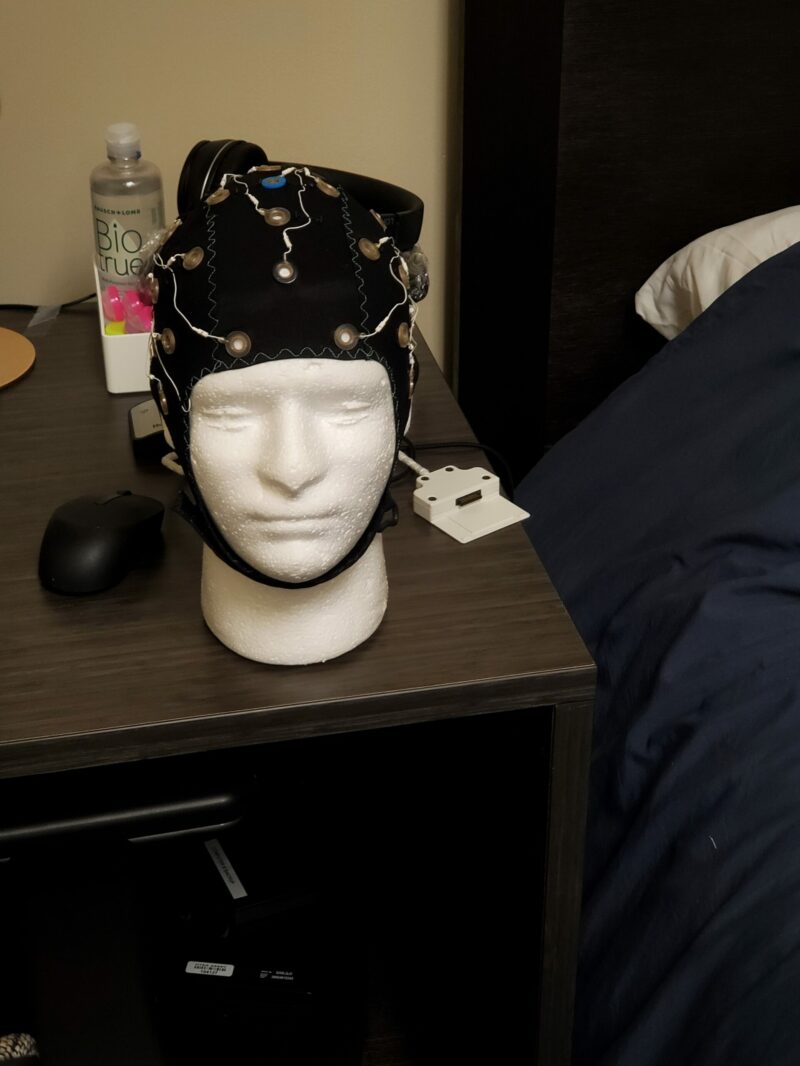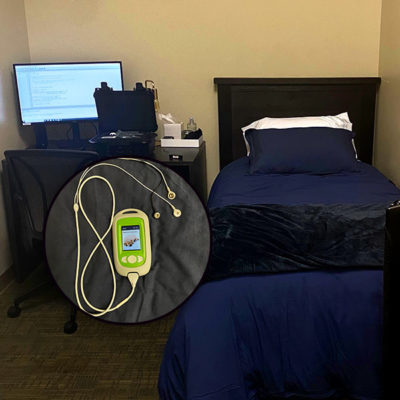Research in the lab is focused on understanding the way sleep affects cognitive and emotional processing using a combination of behavioral, physiological, and computational tools.

Sleep has been shown to affect the process of memory consolidation. Specifically, biological evidence suggests that slow-wave sleep, also known as “deep-sleep”, involves the reactivation of recently acquired memories in brain regions such as the hippocampus. It is assumed that such reactivation allows proper integration of those memories into existing knowledge structures in cortical brain areas while preventing the override of previous memories. Research also suggests that this process can aid in pattern recognition. In particular, studies have shown that participants engaging in a memory task tend to perform better and even identify existing hidden patterns or rules within the task following slow-wave sleep. Occasionally, however, slow-wave sleep can also cause retrieval errors, where inefficient patterns and false memories are unwarrantedly formed. We explore the circumstances by which sleep leads to the formation of such patterns in tasks that employ temporal (time-based) elements and study what causes sleep mechanisms to miss the mark and produce false composite memories. We perform these studies by monitoring how the relevant cognitive functions are affected by both naps and overnight sleep in-lab, and then develop neural network models of the hippocampus and cortex to supply computational explanations for those effects.
Sleep, particularly rapid-eye-movement (REM) sleep, has been shown to influence the processing of emotional memories. In particular, brain regions such as the amygdala and ventromedial prefrontal cortex were shown to mediate the encoding of stressful experiences, a process that REM sleep can support and shape. Most research, however, is focused on sleep occurring after exposure to stressful experiences. Our lab, in contrast, focuses on how encoding of and coping with stressful experiences is influenced by pre-existing “baseline” sleep patterns prior to the initiation of the stressful periods. To that end, we employ mobile sleep monitoring to study populations who are subject to high-stress situations and are prone to develop posttraumatic stress disorder, such as firefighters and emergency medical services (EMS); as well as college students, who often face more daily stressors such as the ones presented by academic life.


Over the last decade, great advancements have been made in facilitating the accessibility and automaticity of sleep monitoring. Beyond state-of-the-art polysomnography used for research and clinical purposes, a variety of mobile consumer devices are now readily available and offer detailed information about the quality and quantity of sleep – including measurements commonly used in research such as epoch-by-epoch sleep staging. In the lab, we are attempting to assess and compare some of these new devices and their automatic algorithms for sleep analysis, in the hope of providing better understanding and measurable metrics of these devices that can help advance the field of home-based sleep monitoring further.